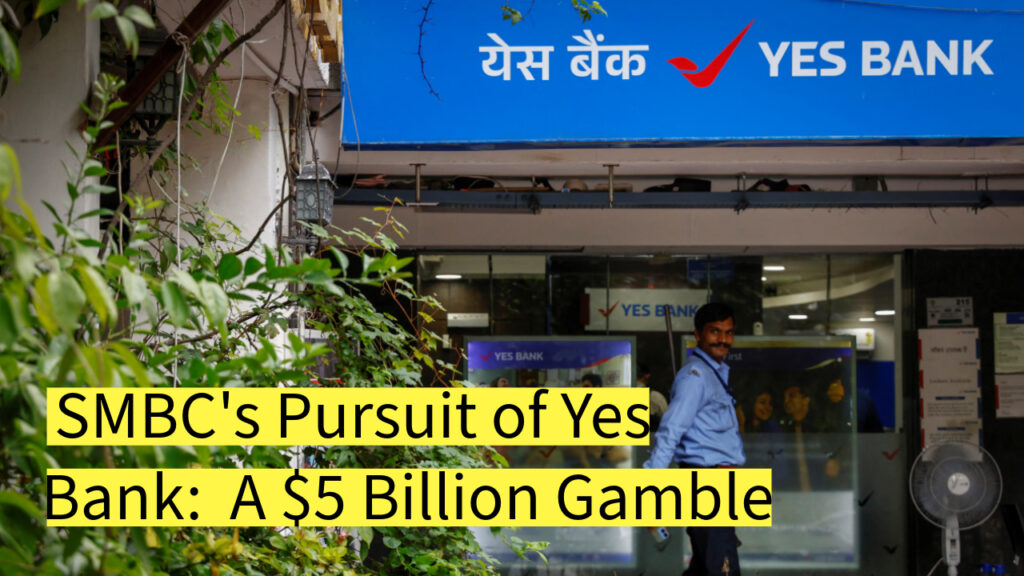In a dramatic twist to India’s banking saga, Sumitomo Mitsui Banking Corporation (SMBC), Japan’s second-largest financial institution, is in advanced talks to acquire a significant stake in Yes Bank. This move could potentially lead to SMBC taking control of the beleaguered lender, a development that has sent ripples through the financial community.
The Stakes: A $5 Billion Gamble
The proposed transaction involves SMBC acquiring a 51% stake in Yes Bank, valuing the deal at approximately $5 billion. This would mark a significant entry of foreign capital into India’s banking sector, which has traditionally been dominated by domestic players. The State Bank of India (SBI), which currently holds a 24% stake in Yes Bank, is seeking to divest its holdings, and SMBC is among the primary contenders interested in a majority stake .

Regulatory Roadblocks: RBI’s Stance
However, the path to acquisition is fraught with regulatory hurdles. The Reserve Bank of India (RBI) has expressed reservations about allowing foreign banks to hold a majority stake in Indian banks. This concern stems from the need to ensure that foreign entities are committed to the Indian market and its regulatory framework. The RBI’s apprehensions have led to delays in the approval process, with some reports suggesting that SMBC’s insistence on a 51% ownership stake has stalled negotiations .
Market Reactions: Investor Sentiment
The uncertainty surrounding the deal has had a noticeable impact on investor sentiment. Yes Bank’s shares, which had seen a surge in anticipation of the deal, experienced a dip as concerns over regulatory approvals mounted. The fluctuating stock prices reflect the market’s cautious optimism and the high stakes involved in this potential acquisition .
The Bigger Picture: Implications for India’s Banking Landscape
Should the deal go through, it could signify a pivotal shift in India’s banking landscape. The infusion of foreign capital and expertise could provide Yes Bank with the resources needed to recover from its past financial troubles. Moreover, SMBC’s involvement could pave the way for increased foreign participation in India’s banking sector, potentially leading to more competitive and diversified financial services.
However, the deal’s success hinges on the RBI’s willingness to relax its regulatory stance and approve the acquisition. The outcome of this high-stakes negotiation will likely set a precedent for future foreign investments in India’s banking industry.
In conclusion, SMBC’s pursuit of Yes Bank is more than just a corporate acquisition; it is a litmus test for India’s openness to foreign investment in its banking sector. As negotiations continue, all eyes will be on the RBI’s next move and the potential ramifications for the future of banking in India.


